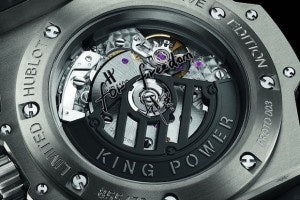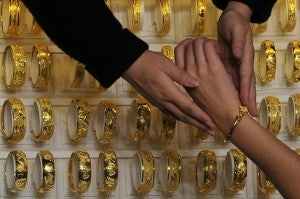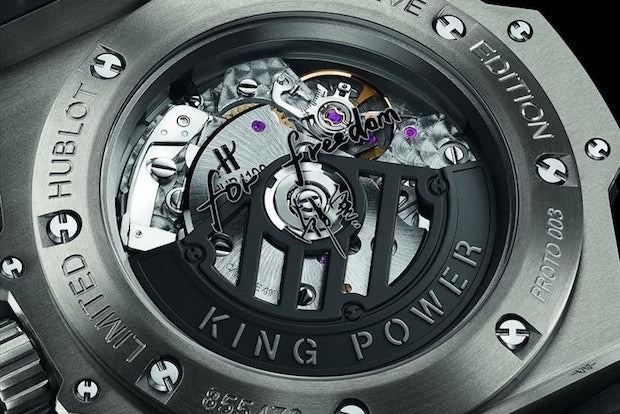Hong Kong's Red-Hot Watch Market Cooling, But Will We See Rebound?#

Hong Kong's luxury market, which has been on a multi-year tear as cash-toting mainland Chinese tourist-shoppers flocked to the duty-free shopper's paradise, has shown signs of cooling this year as these same travelers have either cut back on discretionary spending or simply made luxury purchases further afield (or even at home). Though the overall China luxury market is expected to register comparatively strong growth in 2012, roughly 15-20 percent depending on estimates, the tighter political climate surrounding this fall's leadership change in Beijing and this spring's Bo Xilai scandal are having the same chilling effect that we saw in summer 2011 following the Guo Meimei online scandal. As Jing Daily wrote last December, these scandals have contributed heavily to the gradual decline of conspicuous consumption in mainland China, and sped up the popularity of more low-key luxury brands and products:
With public disdain for conspicuous consumption, Netizen wariness about the “rich second generation” and princelings, and government involvement in banning certain advertisements coming to a head in China, the effect on the luxury industry has been palpable in 2011. In the year ahead, we expect the adoption of “low-key luxury” to gain pace, particularly in economic and political power centers like Beijing and Shanghai.
This progression is perhaps natural, and not terribly surprising, since lower-key luxury has been the name of the game in developed markets like Europe and North America since the financial crisis of 2008.
This week, referencing a decline in the sales of luxury watches in Hong Kong over the past six months, the FT -- writing on an article by Bronte Capital’s John Hempton -- notes that, "Post Bo [Xilai scandal], Swiss bling may not be the fashionable thing to wear," and that (given a more touchy political climate in mainland China in the remainder of 2012) we should expect Chinese shoppers to continue cutting back on gifting and personal buying to avoid being singled out as conspicuous consumers. In very general terms, this is very much a possibility, but it's just as likely that this decrease in watch purchases is a blip that will pick up again after Beijing's leadership change and around the time of major Chinese holidays.

Looking at the last six months as a reflection of mainland Chinese tourist-shopper spending in Hong Kong is always distorted, as luxury spending always peaks around the time of Chinese New Year (January or February), then dips in the summer and picks up again around the time of National Day (October 1). Hempton's article notes that sales growth for "jewelry, watches, clocks and valuable gifts" in Hong Kong showed a marked decline over the past three months compared to the first quarter of the year. While likely a stronger dropoff than normally seen (owing, again, to a transition to more "low-key luxury" items, a decline in conspicuous consumption due to slower macroeconomic growth, political scandals and Beijing's upcoming leadership change), we wouldn't be surprised to see a rebound in the sales of expensive Swiss luxury watches in the last couple months of the year, again peaking next year during the Spring Festival.
Expecting Chinese luxury consumption to simply stop, rather than adapt to the economic or political climate surrounding it, is a highly myopic view to take. Over the past three years, conspicuous consumption and demand for ostentatious markers of wealth has gradually declined in favor or more low-key designs and brands among more seasoned consumers in top-tier cities like Beijing anyway, shifting into inland Chinese cities, where newly wealthy entrepreneurs, coal bosses and an emerging middle class has become an important (but somewhat more showy) entry-level luxury consumer. Don't expect any unsold inventory in Hong Kong or mainland China to go unsold forever -- when Chinese shoppers are a little more comfortable, they'll be back.
